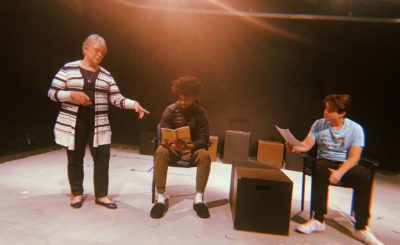By: Drew Petroff, YJ Staff Writer
Oddai Gharib has lived in the United States now for 20 months after immigrating from Jordan. His goal is becoming a cardiac surgeon like the long line of doctors — from dentists to surgeon — in his family.
But his path to State was daunting because of the complexity of immigration today, including background checks.
Making one’s way to the United States has an immense number of complicated steps, frustrating and confusing for those who want to enter the country legally, the biology major said.
“I waited for two years. After every paper, they ask you to wait, and then they ask you for another paper, and they ask you to wait another four months, so it was a lot of waiting,” he said.
Immigration is severely hindered if the person wanting to immigrate doesn’t have a family or relatives. And just as challenging if so. “My family has lived here for 40 years and they still asked me who I was and why I wanted to come to America,” Gharib said.
However, Gharib said these limitations are put in place for multiple reasons, such as mass migration from overpopulated nations and a thorough background checking process.
“A lot of people think that money grows on trees in America but that is not the case. Youneed to work for it. So, making the process really easy, would make Jordan empty after five years,” he said.
He thinks immigration could be more efficient. And less costly.
“Since they do a lot of interviews of the person, they could give you a lot more chances. I have a friend who was rejected five times and each time you try it costs around $500 so he ended up paying $2,500 and still got rejected,” he said.
Prejudice is a challenge for migrants. They fear being attacked and accidentally commiting a disrespectful act. “In Jordan, we didn’t make a big deal about different skin colors because of the culture. So, when I came here, they told me this was the culture and that is why you cannot say this or that,” he said.
Americans vary wildly in terms of attitude and beliefs from all around the U.S. and when an immigrant identifies themselves as one, the results can either be positive or incredibly negative. “I think they have certain advantages actually, because when my teachers help me apply for anything, they tell me to mention that I am an immigrant because it helps put you at a higher priority,” he said.
One of the main problems an immigrant faces is the language barrier and social rules in place. It can demoralize someone who just wants to join in on the conversation.
“It is difficult, because of the language first and then learning the traditions is not easy at all,” he said. “You can do that but not that and it’s totally something new to you and sometimes you totally mess up the situation,” he said.
Jordanian and American culture seem to be on opposite sides when it comes to opportunity and relationships from Gharib’s perspective. He says while there are more opportunities in America, hospitality here doesn’t feel as powerful. In Jordan it is the exact opposite.
The United States has a few qualities that Gharib does greatly enjoy even if the culture is a bit difficult to get used to. “I like how much America cares about the individual person. I don’t know how many people would agree with me about that but from my perspective, they seem to greatly care about the person,” he said.
“It’s a different culture totally in terms of attitude of the people, the way they think, and also traffic,” Gharib said.
If he could bring one piece of the culture of Jordanians and integrate it into the culture of the United States, it would be the close bonds that people form. He wishes that Americans could become friendlier and less superficial with their friendships.
His family owns Ghareeb Dental Group, which has offices in Poca, South Charleston, Cross Lanes, St. Albans, and Teays Valley.


